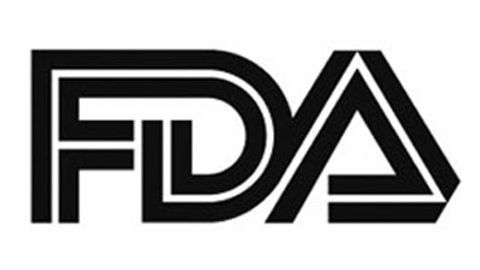FDA Grants Priority Review to Lonca in R/R Diffuse Large B-Cell Lymphoma
The FDA has accepted a Biologic License Application for loncastuximab tesirine as treatment of relapsed or refractory diffuse large B-cell lymphoma and granted it a Priority Review designation.

The FDA has accepted a Biologic License Application (BLA) for loncastuximab tesirine (Lonca) as treatment of relapsed or refractory (R/R) diffuse large B-cell lymphoma (DLBCL) and granted it a Priority Review designation with a Prescription Drug User Fee Act target action date of May 21, 2021, announced ADC Therapeutics in a press release.1
The BLA for Lonca was supported by data from the phase 2 multicenter, open-label, single-arm LOTIS 2 clinical trial (NCT03589469). The study explored the safety and efficacy of Lonca in patients with R/R DLBCL who have received 2 or more prior lines of therapy.
“The FDA’s acceptance of our BLA and granting of priority review for Lonca is a tremendous accomplishment that brings ADC Therapeutics one step closer to being able to offer patients with relapsed or refractory DLBCL a greatly needed new treatment option in 2021,” said Chris Martin, CEO of ADC Therapeutics, in a statement. “We look forward to working with the FDA during its review of our BLA submission for Lonca.”
A total of 145 patients were enrolled into the LOTIS 2 study. Patients had received a median of 3 prior lines of therapy (range, 2-7). The study population consisted of patients with multiple histologies, including MYC, BCL2, and/or BCL6 rearranged high-grade B-cell lymphoma (11.0%), primary mediastinal B-cell lymphoma (4.1%), and transformed indolent lymphoma (17.9%). Most of the patients enrolled (63.4%) had stage IV disease. The median age of the patient population was 66 years (range, 23-94). DLBCL not otherwise specified was observed in 84.8% of patients. Select patients had received stem cell transplantation (16.6%). Twenty percent of patients were primary refractory to their most recent therapy and 56.5% were refractory.2
To be eligible to enroll, patients were required to be at least 18 years of age with a pathologic diagnosis of DLBCL according to the 2016 World Health Organization classification. Patients also were required to have relapsed/refractory disease, measurable disease, available tumor tissue, an ECOG performance status of 0 to 2, and adequate organ function.
Patients were evaluated for the primary end point of overall response rate (ORR). The secondary end points of the study were duration of response (DOR), complete response (CR) rate, relapsed-free survival, progression-free survival, overall survival, and the frequency and severity of adverse events (AEs), as well as of serious AEs.
Loncastuximab tesirine achieved an ORR of 48.3% overall, with complete responses occurring in 24.1% of patients.
The agent was also found to be tolerable with grade or higher treatment-emergent AEs (TEAEs) having occurred in ≥10% of patients. The most common TEAEs were neutropenia (25.5%) with low incidence of febrile neutropenia (3.4%), thrombocytopenia (17.9%), GGT increase (16.6%), and anemia (10.3%).1,2
Further results from the LOTIS 2 study will be presented during the upcoming 2020 American Society for Hematology (ASH) Annual Meeting on Saturday, December 5, 2020.1
Additionally, a confirmatory phase 3 trial is ongoing (LOTIS 5; NCT04384484), which is looking at the combination of Lonca with rituximab in comparison with standard immunochemotherapy for the treatment of patients with R/R DLBCL. The study is looking to enroll about 350 patients.
Loncastuximab tesirine is an antibody-drug conjugate composed of a humanized monoclonal antibody directed against CD19. The agent is designed to disrupt key DNA metabolic processes, which can lead to cell death. The agent has been clinically validated as a treatment for B-cell malignancies.
References:
1. ADC Therapeutics announces FDA Accepts Biologics License Application and grants Priority review for loncastuximab tesirine for treatment of relapsed or refractory diffuse large B-cell lymphoma. News release. ADC Therapeutics. November 20, 2020. Accessed November 20, 2020.
2. Carlo-Stella C, Zinzani PL, Kahl B, et al. Initial results of a phase 2 study of loncastuximab tesirine, a novel pyrrolobenzodiazepine-based antibody-drug conjugate, in patients with relapsed or refractory diffuse large b-cell lymphoma. Presented at: 2020 EHA Annual Meeting; June 11-14, 2020. Abstract S233.